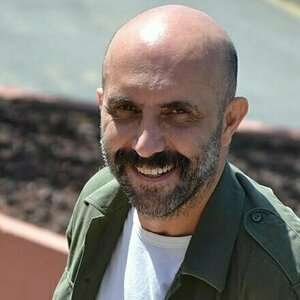Public Figure (curated)
Male
Movies & TV
Buenos Aires, Argentina
27. December
Gaspar Noé is an Argentine filmmaker based in Paris, France. He is the son of Argentine painter, writer and intellectual Luis Felipe Noé. He has directed five feature films: I Stand Alone, Irréversible, Enter the Void, Love, and Climax.
This information is unofficial and this person has no official link with Smashbomb. This content (including text, images, videos and other media) is published
collaboratively by community members and used in accordance with the doctrine of Fair Use.
License Notice: Olivier Strecker, Gaspar Noé 2012, CC BY-SA 3.0
